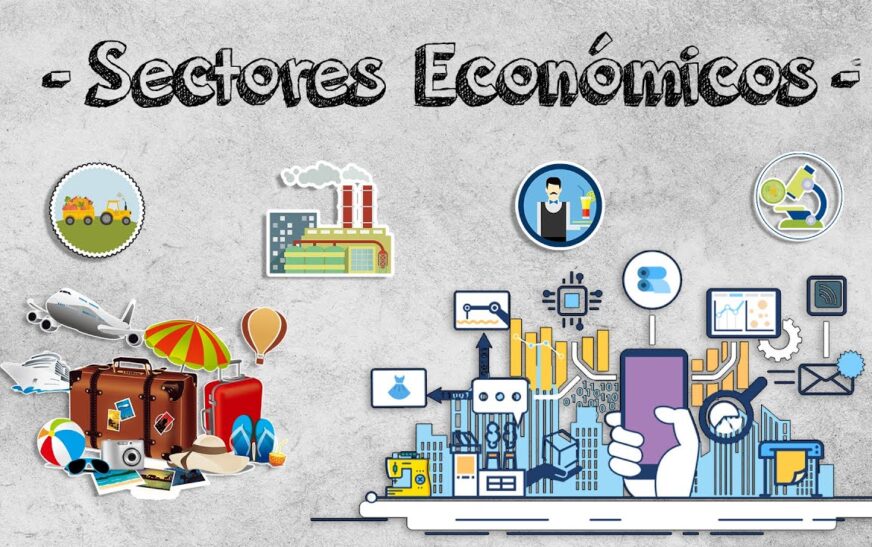Welcome to our blog post about https://finanzasdomesticas.com/sectores-economicos-de-espana/! This phrase means “economic sectors of Spain” in English. Spain has many different parts in its economy, and each one plays a special role.
In this post, we will learn about the main sectores-economicos-de-espana. These sectors include things like farming, tourism, and technology. Each one helps Spain’s economy grow and create jobs for people.
What Are Sectores-Economicos-De-Espana
Sectores-economicos-de-espana are different parts of Spain’s economy. Think of them as different jobs or businesses that help Spain work and grow. Each sector plays a special role in making sure that everything runs smoothly.
In Spain, there are many economic sectors. These include farming, tourism, technology, and more. Each sector has its own way of helping the country, creating jobs, and providing goods or services.
People working in sectores-economicos-de-espana help the country by doing different tasks. For example, farmers grow food, and tech workers create new gadgets. Understanding these sectors helps us see how Spain’s economy works and grows.
How Farming Helps Sectores-Economicos-De-Espana
Farming is a big part of sectores-economicos-de-espana. It provides food for everyone and helps the economy. Farmers grow fruits, vegetables, and raise animals, which are very important.
Without farming, Spain wouldn’t have the fresh food it needs. This sector supports other parts of the economy by providing ingredients for restaurants and stores. It also creates many jobs in rural areas.
Farmers in sectores-economicos-de-espana use modern tools and methods to grow crops. These innovations help increase production and make farming more efficient. This sector is essential for both local markets and international trade.
Tourism’s Role in Sectores-Economicos-De-Espana
Tourism is a major part of sectores-economicos-de-espana. People from all over the world visit Spain to see its beautiful places. This sector brings a lot of money into the country.
Hotels, restaurants, and tour guides all benefit from tourism. Visitors spend money on accommodations, food, and activities. This spending helps local businesses and creates jobs for many people.
The success of sectores-economicos-de-espana in tourism depends on Spain’s attractions. Famous landmarks, beaches, and cultural sites draw tourists, making tourism a key part of Spain’s economy.
The Technology Sector in Sectores-Economicos-De-Espana
The technology sector is growing in sectores-economicos-de-espana. It includes companies that make computers, software, and gadgets. This sector is important for innovation and modern living.
Tech companies in Spain are creating new products that people use every day. From smartphones to software applications, technology is changing how we live and work. This sector also provides many high-paying jobs.
In sectores-economicos-de-espana, technology helps other sectors too. For example, tech tools make farming easier and tourism more enjoyable. Technology’s role in Spain’s economy is becoming more significant every year.
Why Manufacturing is Important in Sectores-Economicos-De-Espana
Manufacturing is a key part of sectores-economicos-de-espana. This sector makes things like cars, machines, and household products. It is important because it turns raw materials into useful items.
Factories and plants in Spain produce goods that are sold both locally and internationally. This process creates many jobs and supports other industries by providing necessary products.
The manufacturing sector in sectores-economicos-de-espana helps the economy by boosting exports. Products made in Spain are shipped all over the world, bringing in money and supporting the country’s economic growth.

How Services Affect Sectores-Economicos-De-Espana
The services sector is a major part of sectores-economicos-de-espana. This includes businesses that provide help or work, like banks, schools, and hospitals. Services are essential for everyday life.
In Spain, many people work in service industries. This sector helps people manage their money, get educated, and stay healthy. It plays a big role in supporting the economy and making life better.
Sectores-economicos-de-espana in the services area include everything from customer support to healthcare. These services are important for maintaining a high quality of life and ensuring that Spain’s economy runs smoothly.
The Energy Sector in Sectores-Economicos-De-Espana
The energy sector is crucial in sectores-economicos-de-espana. It includes companies that produce and supply energy like electricity and gas. This sector powers homes, businesses, and industries.
Spain is investing in renewable energy sources, such as wind and solar power. This helps reduce pollution and makes the country’s energy supply more sustainable. The energy sector also supports other parts of the economy by providing necessary resources.
Energy production in sectores-economicos-de-espana is a key factor in economic growth. Reliable energy sources are essential for the country’s development and for keeping other sectors running smoothly.
What is the Real Estate Sector in Sectores-Economicos-De-Espana?
The real estate sector is an important part of sectores-economicos-de-espana. It involves buying, selling, and renting properties like homes and offices. This sector helps people find places to live and work.
Real estate activities contribute to Spain’s economy by generating investment and creating jobs. Construction companies build new properties, while real estate agents help people find them. This sector plays a big role in both local and national economies.
In sectores-economicos-de-espana, the real estate market influences other areas like tourism and retail. As more people move to Spain or visit, the demand for real estate increases, boosting the economy.
Transportation’s Impact on Sectores-Economicos-De-Espana
Transportation is a key part of sectores-economicos-de-espana. It includes everything from buses and trains to ships and planes. Good transportation helps people and goods move around easily.
Spain’s transportation system connects cities and regions, making travel convenient. This sector is vital for business and tourism. Efficient transportation supports economic activities by allowing people to reach their destinations quickly.
In sectores-economicos-de-espana, transportation infrastructure like roads and railways helps other industries grow. It ensures that products can be shipped and people can travel, supporting the country’s overall economy.
How Retail Shapes Sectores-Economicos-De-Espana
Retail is an important part of sectores-economicos-de-espana. This sector includes stores and shops where people buy things like clothes, food, and electronics. Retail helps the economy by offering goods and creating jobs.
Shops and malls in Spain provide a wide range of products. Retail businesses also support other sectors by selling goods produced in Spain or abroad. This sector contributes to the country’s economic health and job creation.
In https://finanzasdomesticas.com/sectores-economicos-de-espana/, retail plays a significant role in consumer spending. When people shop, they support local businesses and contribute to the overall growth of the economy.
Education and Its Place in Sectores-Economicos-De-Espana
Education is a vital part of https://finanzasdomesticas.com/sectores-economicos-de-espana/. Schools, colleges, and universities provide learning opportunities for people of all ages. This sector helps prepare people for jobs and supports the economy.
In Spain, education helps train future workers and leaders. It ensures that people have the skills they need for various jobs in different sectors. Quality education also attracts international students and boosts the economy.
https://finanzasdomesticas.com/sectores-economicos-de-espana/ rely on a strong education system to provide skilled workers. Investing in education is important for the country’s long-term economic growth and success.
Future Trends for Sectores-Economicos-De-Espana
Looking ahead, there are many exciting future trends for https://finanzasdomesticas.com/sectores-economicos-de-espana/. Technology, sustainability, and new innovations are shaping the economy. These changes will affect how different sectors grow and develop.
In Spain, future trends include increasing use of renewable energy and advances in technology. These trends are expected to create new opportunities and challenges for various sectors. Staying updated on these trends helps businesses and workers adapt.
https://finanzasdomesticas.com/sectores-economicos-de-espana/ will continue to evolve with these trends. By embracing innovation and change, Spain’s economy will remain dynamic and competitive in the global market.
The Role of Agriculture in Sectores-Economicos-De-Espana
Agriculture is a fundamental part of sectores-economicos-de-espana. It involves growing crops and raising animals for food. This sector provides the essential ingredients that people need every day, such as fruits, vegetables, and meat.
Farmers in Spain work hard to grow food on large farms and small fields. They use advanced methods and tools to increase production and ensure that crops are healthy. By producing high-quality food, agriculture supports the country’s food supply and economy.
The agricultural sector also affects other sectores-economicos-de-espana. For example, fresh produce from farms is used in restaurants and markets. Additionally, farming helps create jobs in rural areas, contributing to the local economy.
Spain’s climate and geography play a big role in agriculture. Different regions are known for specific types of crops and livestock. Understanding these regional specialties helps us appreciate the diversity of Spanish agriculture and its importance in the economy.
How Financial Services Support Sectores-Economicos-De-Espana
Financial services are a key component of sectores-economicos-de-espana. This sector includes banks, insurance companies, and investment firms. These services help people manage their money and make financial decisions.
Banks provide essential services like savings accounts and loans. They help businesses get the funds they need to grow and operate. Insurance companies offer protection against risks, while investment firms help people grow their wealth.
In sectores-economicos-de-espana, financial services support both individuals and businesses. By providing access to money and financial advice, this sector helps the economy function smoothly and supports economic growth.
The financial sector also plays a role in global trade. By handling international transactions and investments, Spanish financial institutions help businesses expand beyond borders, contributing to the country’s economic success.
Impact of Healthcare on Sectores-Economicos-De-Espana
Healthcare is an important part of sectores-economicos-de-espana. This sector includes hospitals, clinics, and medical professionals who provide essential services to keep people healthy. Good healthcare is crucial for maintaining a strong and productive workforce.
In Spain, healthcare services are available to everyone, thanks to a well-organized system. Hospitals and doctors provide treatment, preventive care, and emergency services. This sector also includes research and development, which leads to new medical technologies and treatments.
Healthcare impacts the economy by ensuring that people stay healthy and can work effectively. A healthy population is more productive and contributes positively to other sectors of the economy. Investing in healthcare helps improve the quality of life and supports economic stability.
The Importance of Innovation in Sectores-Economicos-De-Espana
Innovation is a driving force in sectores-economicos-de-espana. It involves creating new ideas, products, and processes that improve how things are done. Innovation helps businesses stay competitive and drives economic growth.
In Spain, many sectors are embracing innovation to enhance their services and products. For example, technology companies develop new software and gadgets, while manufacturing firms use advanced techniques to improve production.
Innovation also leads to new business opportunities and job creation. By focusing on creative solutions and advancements, Spanish companies can meet changing consumer needs and stay ahead in the global market.
Sectores-economicos-de-espana that invest in innovation are likely to experience growth and success. Encouraging creativity and research is essential for maintaining a dynamic and forward-looking economy.

Tourism’s Contribution to Sectores-Economicos-De-Espana
Tourism is a significant part of sectores-economicos-de-espana. This sector attracts visitors from around the world to experience Spain’s culture, history, and natural beauty. Tourism helps boost the economy by bringing in revenue and creating jobs.
Spain’s diverse attractions, such as historic landmarks, beautiful beaches, and vibrant cities, draw tourists throughout the year. Hotels, restaurants, and tour operators all benefit from the influx of visitors.
The tourism sector also supports other areas of the economy. For example, local artisans and businesses sell products and services to tourists. This economic activity creates jobs and stimulates growth in various sectors.
How Retail Drives Sectores-Economicos-De-Espana
Retail is a major player in sectores-economicos-de-espana. It involves selling goods directly to consumers through stores, online shops, and markets. This sector helps people access products they need and contributes to economic activity.
In Spain, retail businesses range from small shops to large malls. They offer a variety of products, including clothing, electronics, and groceries. Retail sales generate revenue and support the economy by creating jobs and stimulating consumer spending.
The success of the retail sector impacts other sectores-economicos-de-espana. For instance, demand for products drives production in manufacturing and influences supply chains. Retail is crucial for economic growth and development in Spain.
The Influence of Real Estate on Sectores-Economicos-De-Espana
Real estate is a key component of sectores-economicos-de-espana. This sector includes buying, selling, and renting properties such as homes, offices, and commercial spaces. Real estate helps people find places to live and work.
In Spain, the real estate market is active, with various opportunities for investment and development. New construction projects and property sales contribute to economic growth and create jobs in construction and real estate services.
Real estate also affects other parts of the economy. For example, commercial properties house businesses, and residential properties provide homes for workers. The sector supports economic activity and contributes to the overall health of Spain’s economy.
The Role of Transportation in Sectores-Economicos-De-Espana
Transportation is vital in https://finanzasdomesticas.com/sectores-economicos-de-espana/. It includes all forms of moving people and goods from one place to another, such as roads, trains, and airports. Efficient transportation supports economic activities and daily life.
Spain’s transportation network connects different regions, making it easy for people to travel and for goods to be delivered. This connectivity is crucial for business operations, tourism, and other economic activities.
Good transportation infrastructure also attracts investment and supports trade. By ensuring smooth and reliable movement, the transportation sector helps keep Spain’s economy active and growing.
Conclusion
https://finanzasdomesticas.com/sectores-economicos-de-espana/ are the different parts of Spain’s economy that work together to make the country thrive. From farming and tourism to technology and healthcare, each sector plays a special role in helping Spain grow and succeed. Understanding these sectors helps us see how they contribute to Spain’s overall prosperity.
Every part of the economy is important and supports the others. For example, farmers grow food that feeds people, and tourism brings visitors who spend money. By learning about https://finanzasdomesticas.com/sectores-economicos-de-espana/, we can appreciate how each sector helps make Spain a great place to live and work.










